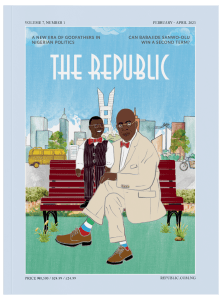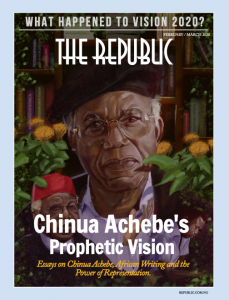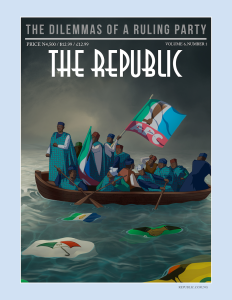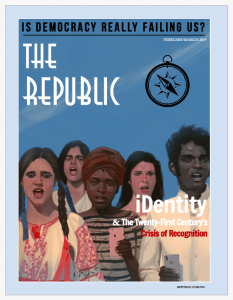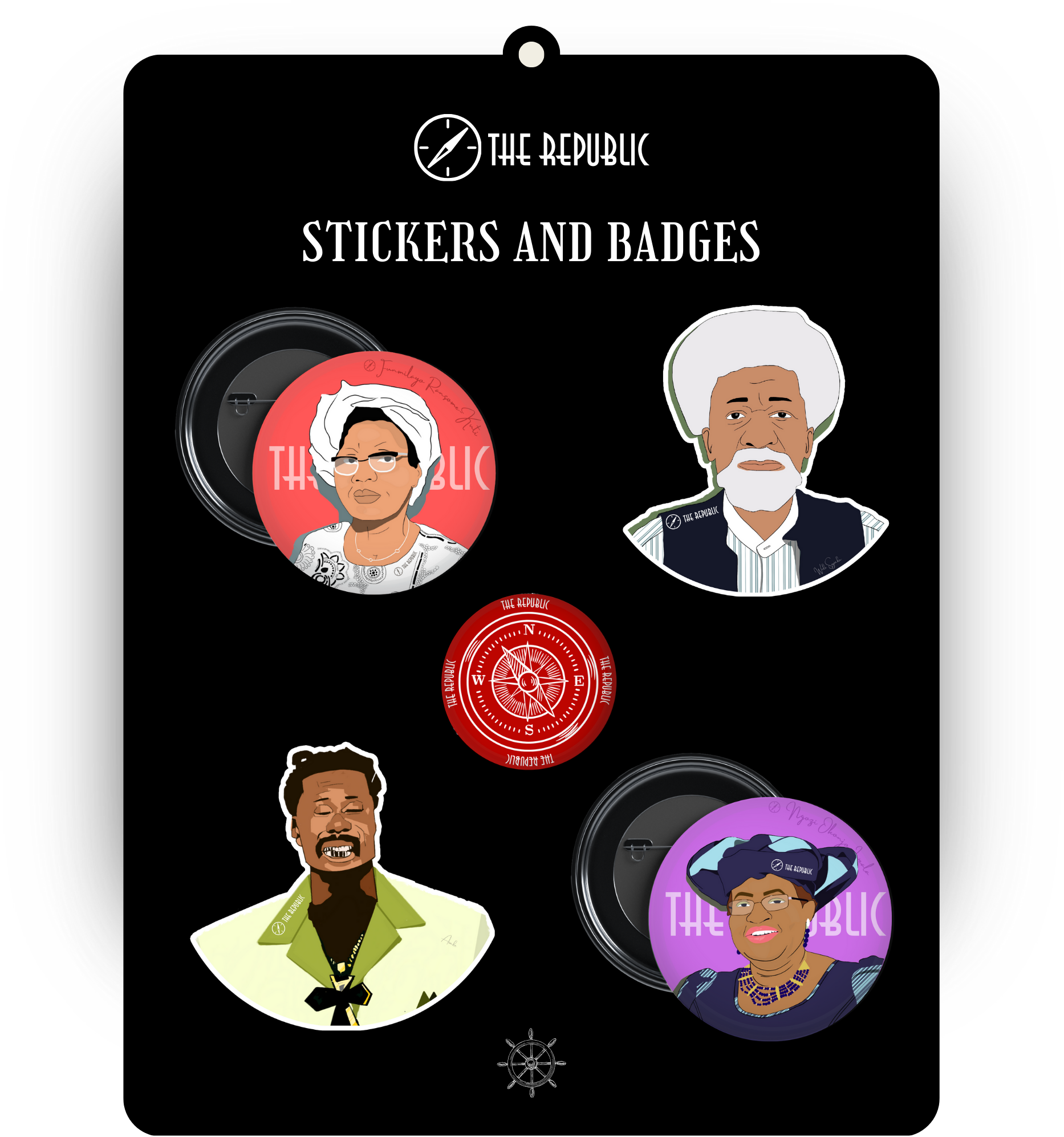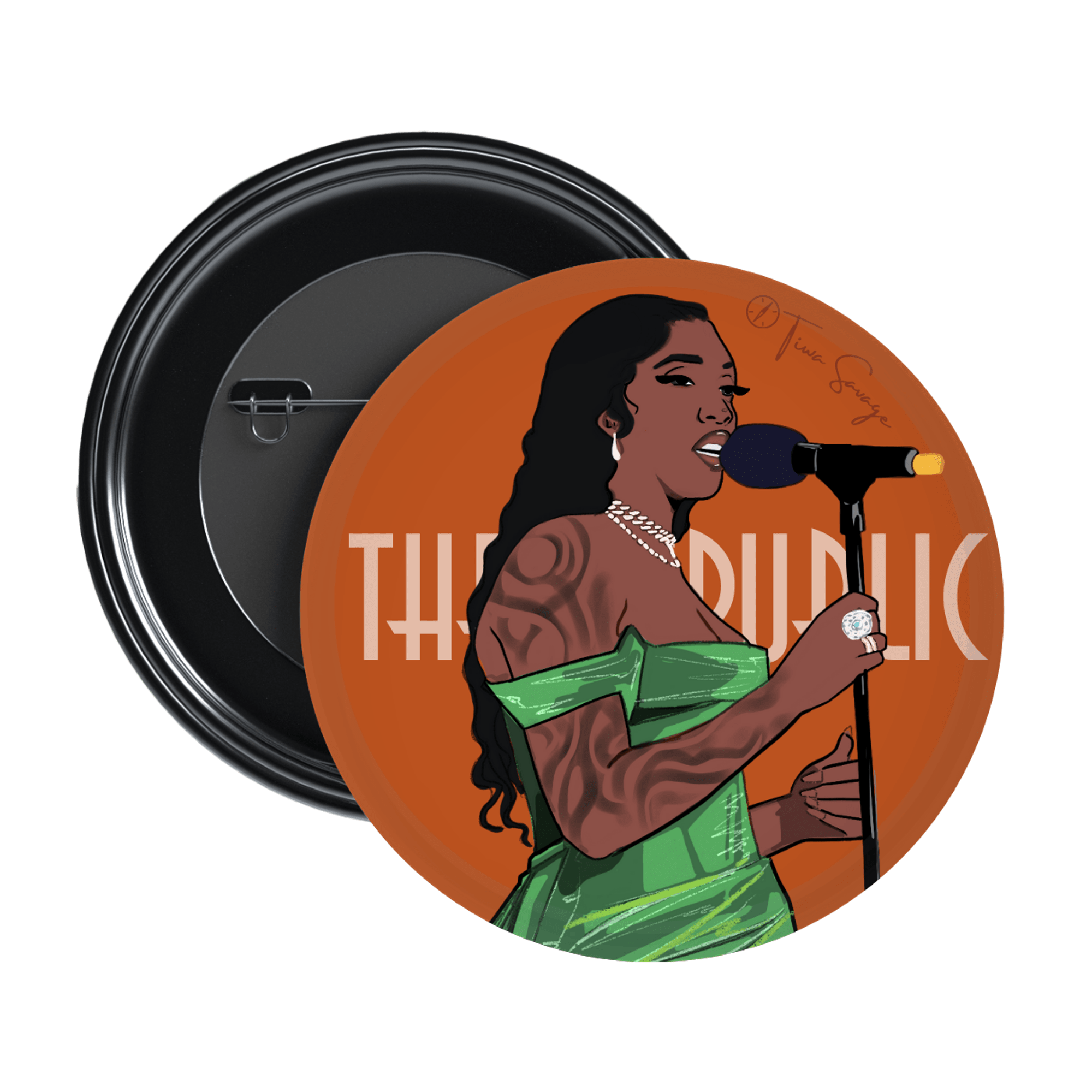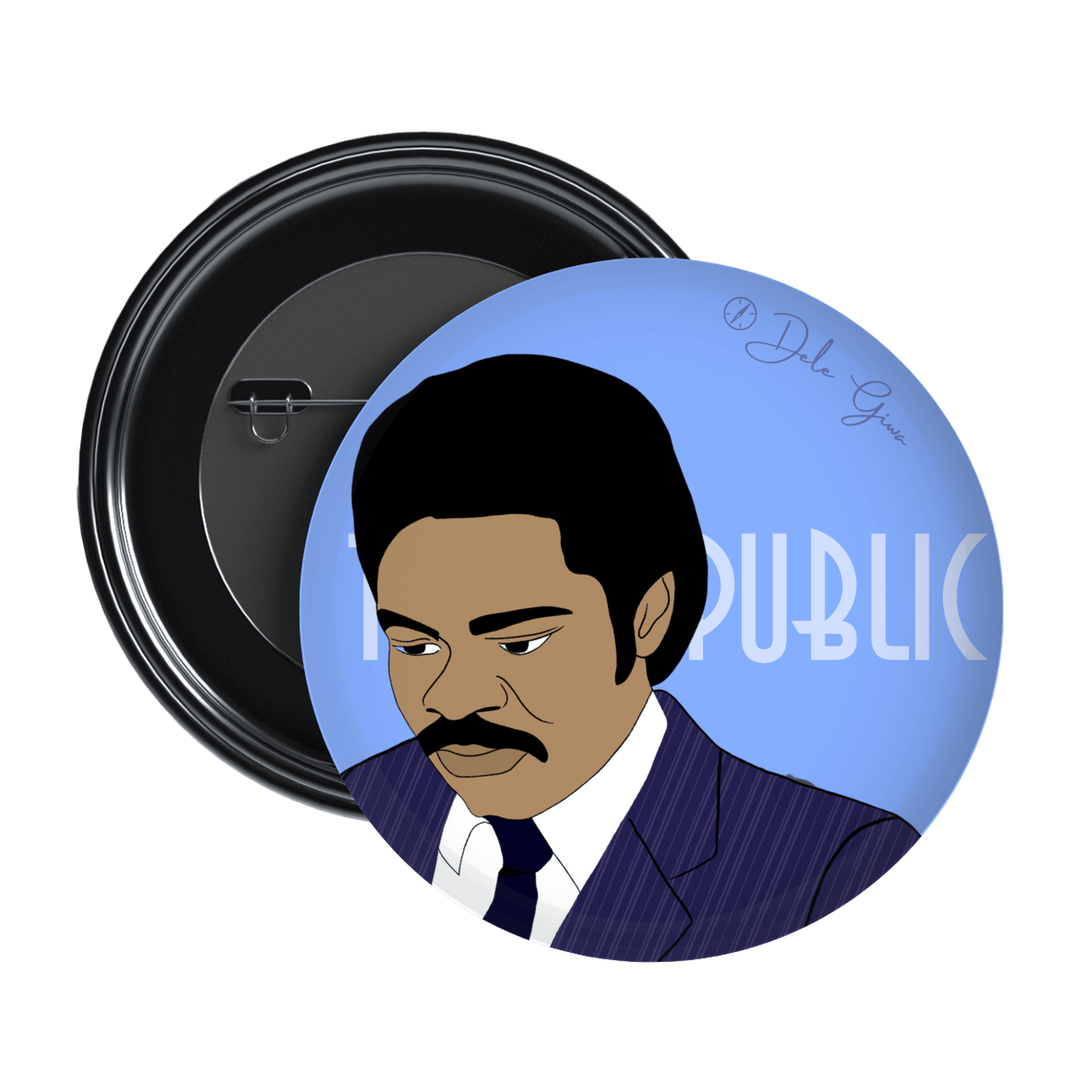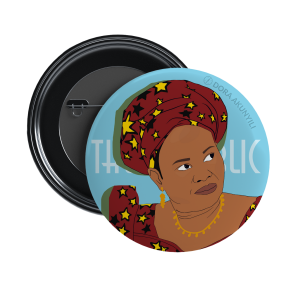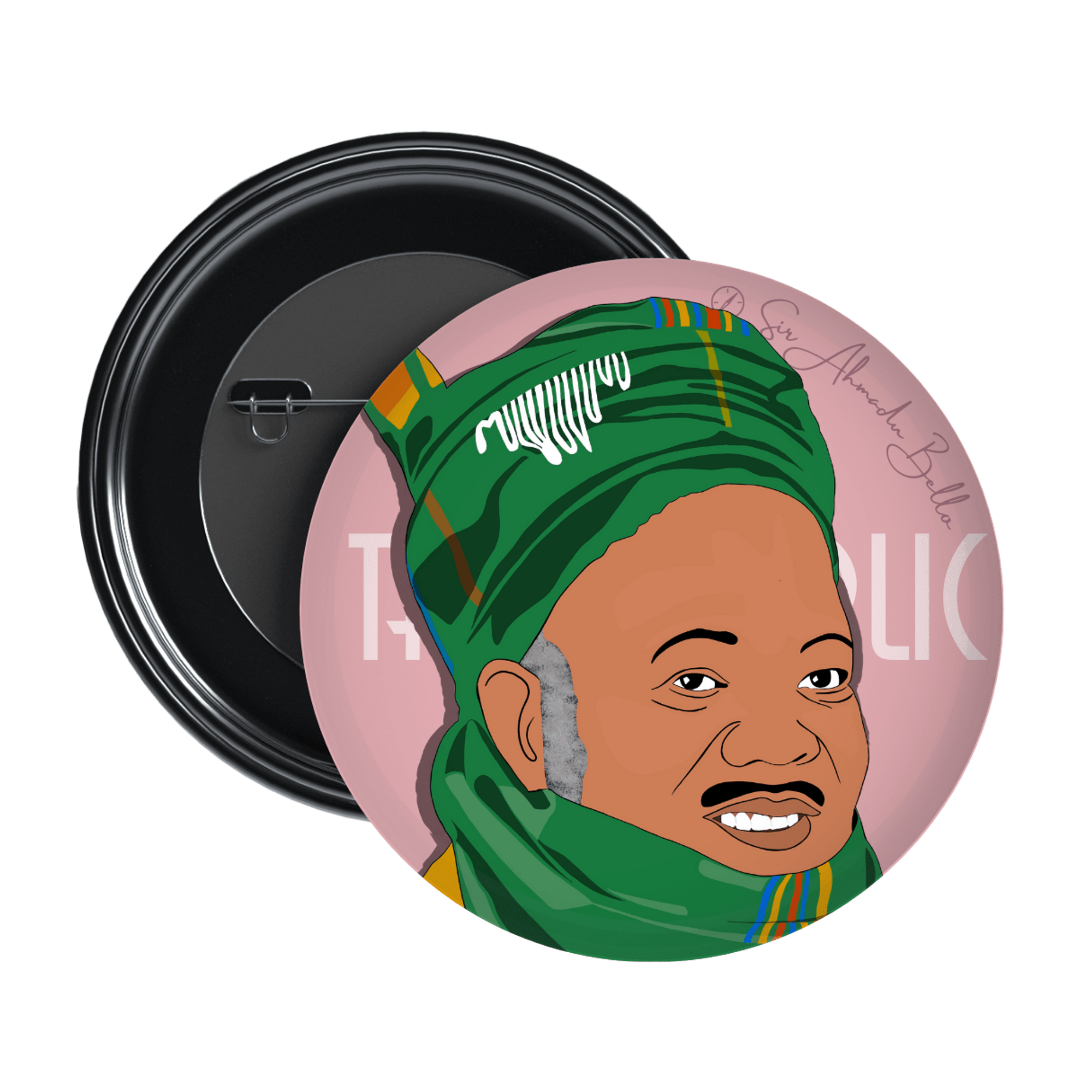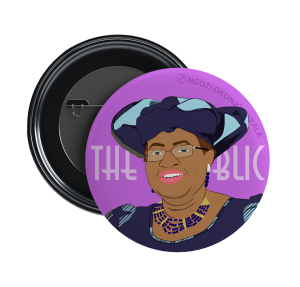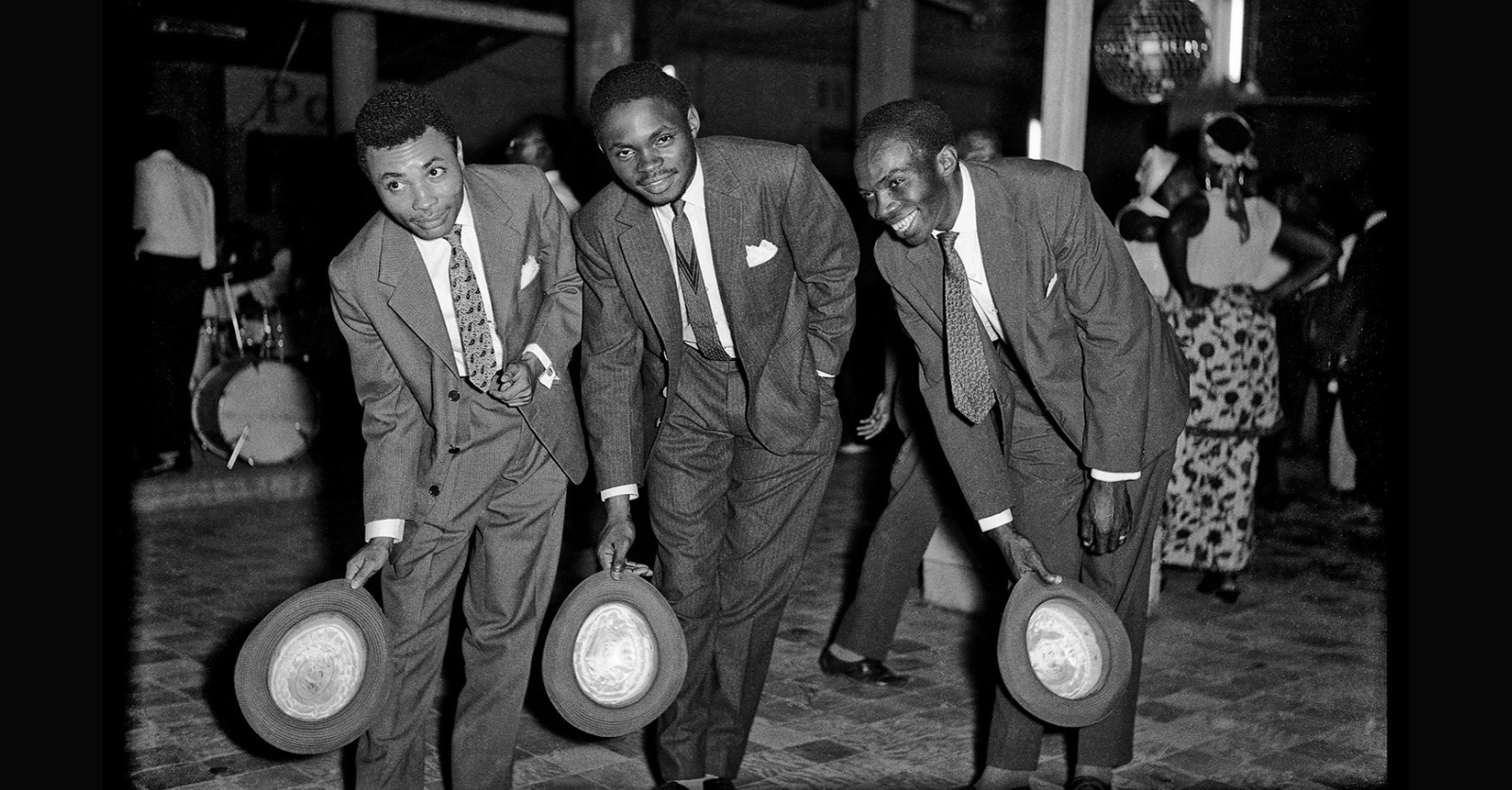
‘Greetings from the musicians’ Léopoldville, 1965. LEMVO JEAN ABOU BAKAR DEPARA / WIKIMEDIA COMMONS.
DISPATCH FROM CONGO
Remembering Congo’s Tropical Cowboys

‘Greetings from the musicians’ Léopoldville, 1965. LEMVO JEAN ABOU BAKAR DEPARA / WIKIMEDIA COMMONS.
DISPATCH FROM CONGO
Remembering Congo’s Tropical Cowboys
On 29 March 2024, American pop star, Beyoncé, released her eighth studio album, Cowboy Carter. The album is an appreciation of the American Western culture and how Black people played an important role in solidifying its identity. As with many of her productions, Beyoncé’s most recent project has inspired fans across the world, moving them to claim cowboy roots, which they’ve begun expressing through cultural statements as simple as their X (formerly Twitter) usernames by adding ‘cowboy’ as a prefix. One of those newfound cowboys is X user, Cowboy Malakai, whose appreciation for the project inspired her to create a thread about the history of African cowboys.
BUFFALO BILL
When picturing images of cowboys, viewers might be tempted to automatically imagine white men saddled up on horses, the likes of Buffalo Bill or John Wayne. However, in Africa (and contrary to popular culture), cowboys have another, more coloured history. Beyoncé’s album serves as a reminder of the much-overlooked presence of Black people in cowboy-centered media.
Recent studies have confirmed that some cows imported into the Americas in the 17th century have DNA traces from Africa. Additionally, enslaved Africans were presumed to be more knowledgeable in the field so were brought in to rear these cows, playing a significant role in the history of cowboys in the US. Cows originally didn’t exist in the Americas prior to Christopher Columbus’ travels in the 1400s. The explorer brought the animals back with him from the Caribbean. Popular accounts say they were bred locally before they were imported to other regions. In a 2023 paper, researchers from the Florida Museum of Natural History conducted DNA tests on cattle remains from the 16th to 18th centuries. The results showed that, consistent with the traditional picture, seven of the earliest cattle samples, coming from Puerto Real in Haiti and dating to around 1500 to 1550, had similar maternal DNA, which tied their origins broadly to Europe. But one specimen from Bellas Artes in Mexico revealed a lineage that likely originated directly from Africa in the first half of the 17th century.
shop the republic
-
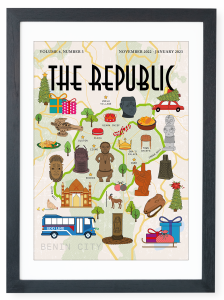 ₦70,000.00 – ₦75,000.00Select options This product has multiple variants. The options may be chosen on the product page
₦70,000.00 – ₦75,000.00Select options This product has multiple variants. The options may be chosen on the product page -
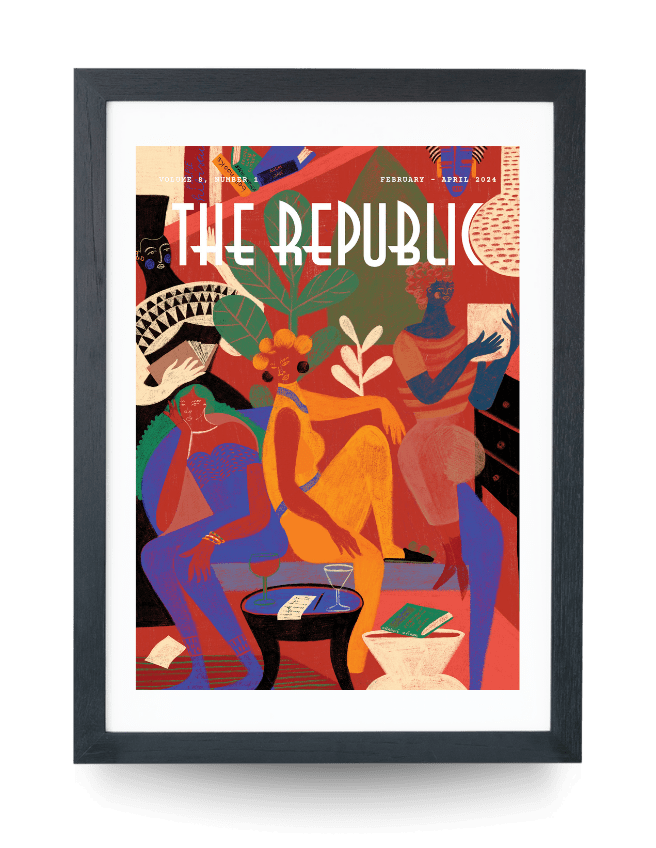 ₦70,000.00 – ₦75,000.00Select options This product has multiple variants. The options may be chosen on the product page
₦70,000.00 – ₦75,000.00Select options This product has multiple variants. The options may be chosen on the product page -
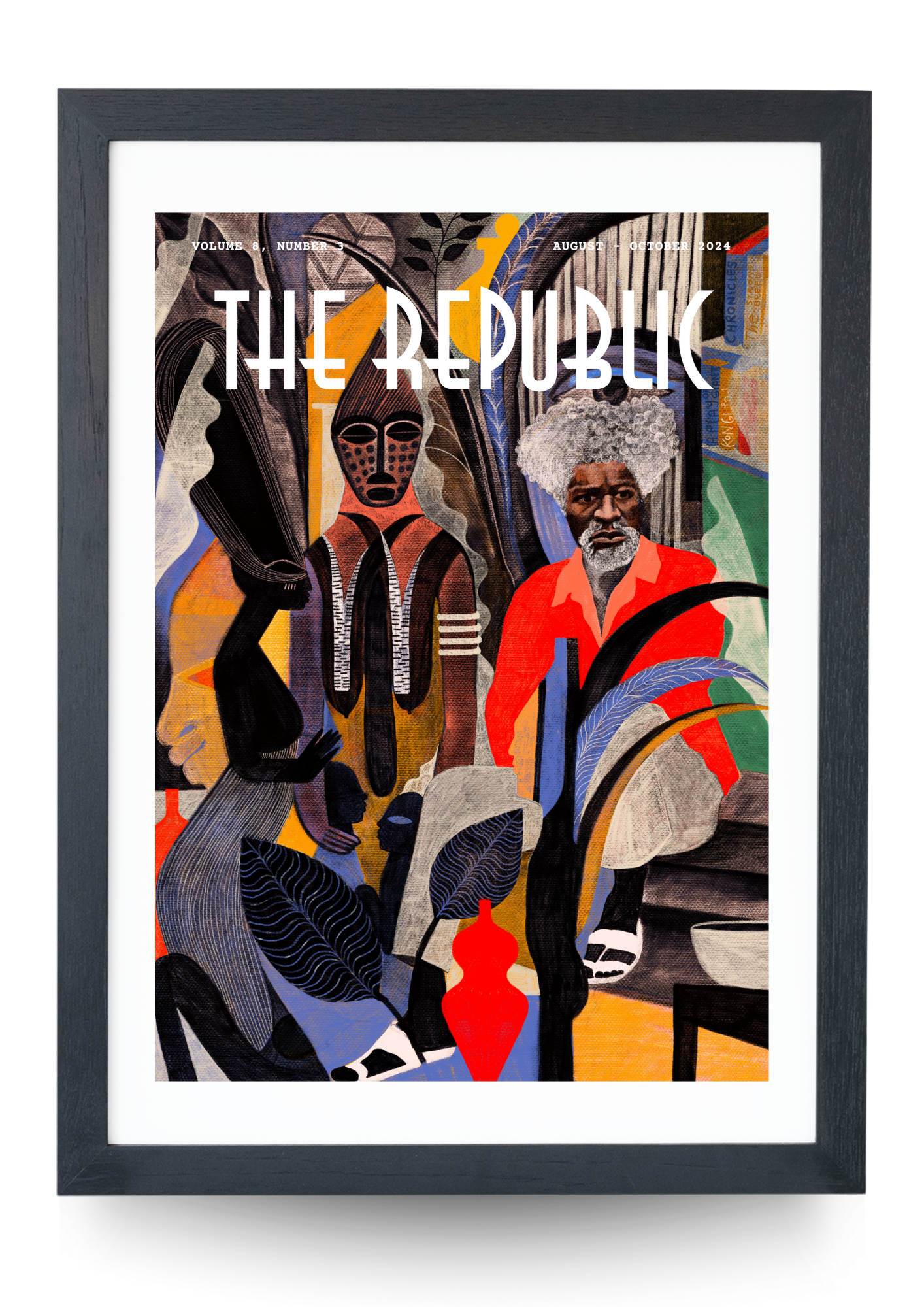 ₦70,000.00 – ₦75,000.00Select options This product has multiple variants. The options may be chosen on the product page
₦70,000.00 – ₦75,000.00Select options This product has multiple variants. The options may be chosen on the product page -
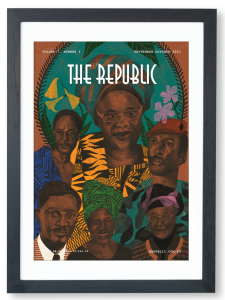 ₦70,000.00 – ₦75,000.00Select options This product has multiple variants. The options may be chosen on the product page
₦70,000.00 – ₦75,000.00Select options This product has multiple variants. The options may be chosen on the product page
shop the republic
-
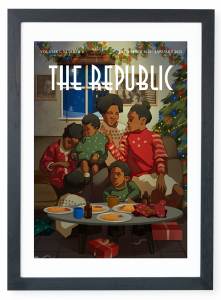 ₦70,000.00 – ₦75,000.00Select options This product has multiple variants. The options may be chosen on the product page
₦70,000.00 – ₦75,000.00Select options This product has multiple variants. The options may be chosen on the product page
AFRICAN AMERICAN ORIGINS
Black America has a rich cowboy history. The Empancipation Proclamation of 1863 and the end of the American Civil War in 1865, marked the end of institutionalized slavery in Southern States. In search of a source of income, formerly enslaved Black people moved West and began tending to ranches. Nat Love, who was a Tennessee native, wrote his autobiography, The Life and Adventures of Nat Love, which detailed his life as an African American cowboy. Another cowboy, Bass Reeves, who had escaped his plantation in Arkansas, fled to Oklahoma which was then Native American land. When slavery was abolished with the 13th Amendment, Reeves returned to Arkansas where he got married and had eleven children. It was only ten years after the abolishment that he returned to Native American territory. There, he was appointed as the first Black marshal of the lawless West and is speculated to have inspired the main character in The Lone Ranger (a 2013 film about a Texas ranger who captures outlaws in the Old Wild West) with his impact in the community and his incredible shooting skills.
Cowboys became entertainment figures in American culture with Western movie productions gaining prominence in the mid-20th century. These films depicted their daring exploits, confrontations, and exciting lives in the West. Unfortunately, due to racism in the US, the role of Black cowboys was greatly overlooked. Instead, there was focus on white cowboys and characters on screen.
shop the republic
CONGO BILLS
Even outside the US, cowboy culture was alive. In Africa, cowboys have a robust history dating as far back as the 1950s. More than being simple animal herders, these cowboys were abolitionists who played their part in dismantling Europe’s imperialism on the continent.
In 1940s Kinshasa, Congo, decades after Reeve’s achievements, colonialization and segregation were still rife. The country was under Belgian rule and a revolution was brewing amidst the racial divide and inequality. King Leopard II, who headed the Belgian government at the time, had acquired the Congo as his personal possession under the pretext of ‘civilizing’ the Congolese people. Under his rule, the Congolese people were treated harshly as many of them were brutalized, maimed, and forced to mine for valuable resources to enrich Leopard II. The Congolese fought back in protest to the brutality and their internal rebellions and external pressures from the international community forced Leopard II to turn the Congo over to the Belgian government under the name of the Belgian Congo.
The Belgian government adopted paternalism when dealing with the Congolese populace, treating them like children to be trained into civilization. The Belgian government also limited how much education the Congolese could access to primary level. In response, the youth in Congo’s capital, Léopoldville (now Kinshasa), turned to entertainment to ease their distress. One of the more popular genres at the time was American Western movies involving cowboys, which brought in insurmountable revenue for theatres in the 1950s and 1960s. However, the all-white casts hid the reality of Black involvement in the culture, propagating the Belgian intention to subdue the Congolese people.
In his book, Tropical Cowboys: Westerns, Violence, and Masculinity in Kinshasa, Dr Ch. Didier Gondola, explains that Congolese youth who imitated the Western cowboys were known as ‘tropical cowboys’ or ‘bills’ and included both male and female youth who transformed Kinshasa through their ‘unique language (Indoubill), performative culture, and rebellious ethos’. They were able to integrate the cowboy genre into their cultural heritage, disproving those who accused them of abandoning their traditions for foreign ideals. Instead, they didn’t care for ethnic particularities and would stick to communicating through Indoubill.
These young bills sourced their attire—cowboy hats and boots—from Belgium. They also prioritized bodybuilding and brotherhood, supporting ‘younger brothers’ and fighting against any perceived injustices to them—this included colonialism. Gondola told CNN in 2015 that the bills’ favour with masculinity was what inspired them to emulate the winning white cowboys rather than the minority when consuming the Western media. ‘Young people, when they’re watching Manichean movies, will always side with the victors,’ he explains. ‘They’re never going to side with the people who are being destroyed, being defeated; being stripped of their masculinity.’
Eventually these cowboys who valued strength also became nightmares for their communities. They graduated from being big brothers who protected the young to being delinquents. The movement became violent, involving territorial disputes and sexual abuse. As many of them were without parental figures or guardians, they prowled the streets of Kinshasa freely shoplifting and pickpocketing.
shop the republic
COWBOYS AGAINST COLONIALISM
An irony exists in the manifestation of the Congo Bill. The Belgian government initially exposed the Congolese youth to Western films and comic shows such as Charlie Chaplin simply because they believed Congolese youth lacked enough cognitive reasoning to understand much more. Cowboy-themed movies were also prioritized as they boasted of white tyranny. Blinded by their racism, what the Belgian government did not expect was that the youth would take the heroism of the main characters and leave behind the racist interpretations.
It was in 1959 that their most crucial role emerged. Riots broke out in Kinshasa in January due to frustrations with the colonial government. There was violence on the streets and the people destroyed traces of Belgian paraphernalia across the city. To tame the situation and ease the public, the Belgian government decided to hold an election. However, they had planned to place puppet leaders in power to continue their oppression over the people. This didn’t work as an overwhelming majority of the populace, aware of their plans, decided to boycott the election as a form of protest. The protest was successful as the riots continued throughout the city spearheaded by youths who claimed bill associations. The Belgian government eventually withdrew from Congo. On 30 June 1960, Congo declared independence from Belgium.
Most young bills of the colonial era eventually gave up their saddles to take up political positions following their attainment of independence. Others had high-profile jobs in the music industry or the army. According to Gondola, by 1965, bills ‘no longer elicited fear from residents and were more preoccupied with seducing girls with their debonair look and suave demeanor than mugging passersby at makeshift checkpoints.’ Today, cowboys aren’t as popular as they once were in Congo. However, their heritage lives on in reimagined adaptations such as the band, Congo Cowboys, a three-person group championing country music in today’s Congo and infusing it with African sounds⎈




